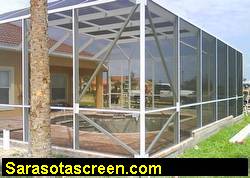
(NewsUSA) - To some, the current real estate market looks dismal. A weak labor market, rising mortgage rates and high energy prices have caused many American homeowners to lose their properties. To others, the real estate markets looks ripe for investment.
Deer Park Development Corporation, a company with over 30 years of experience in the real estate market, has developed a new approach for investors hoping to purchase and resell foreclosed properties for profit. Foreclosed houses sell at lower prices, helping investors buy properties with less money upfront. In the past, housing prices reflected overinflation -; as the market evens out, the mortgage crisis might actually help stabilize home prices.
Marty O'Malley, CEO of Deer Park Development Corporation, noted that the current real estate market represents a once-in-a-lifetime opportunity for the astute buyer. "With one in every 360 homes in foreclosure nationwide, the opportunity to buy distressed property at significant discounts to their original appraisals is extensive," said O'Malley. "In Clark County, Nev., one in every eighty homes is in foreclosure, and on top of those statistics, one in every two homes is underwater, meaning that it's not worth the amount of money owed on it."
With this amount of inventory on the market, there are situations out there that present themselves as profitable ventures. Not all of the foreclosures are money-making deals, but with experience, professional investors know when and what to buy, so they can make successful ventures.
Being an individual investor in the real estate market can be a dangerous proposition for the inexperienced. But investors, in tying themselves to a group of experienced real estate players, can use experts' hard-earned knowledge to turn a profit in the down real estate market.
"Allowing individual investors to participate in ownership through direct partnership creates a risk-free vehicle for foreclosure players to work with," said O'Malley,
For additional information, visit Deer Park Development Corporation's Web site at deerparkdevelopmentcorp.com or contact Capital Group Advisors at 954-297-0706.

(NewsUSA) - Americans tend to view their homes as safe havens. What few people realize is that the air in their home can be more polluted than outdoor air, leading to health problems.
According to the U.S. Environmental Protection Agency, people spend almost 90 percent of their time indoors. Due to extended exposure, indoor pollution might cause more health problems than outdoor pollution.
What causes indoor pollution? Common, synthetic materials, like paints, plastics and household cleaners, all leak chemical emissions. Sensitive people can react to anything from wax to furniture polish. Building materials, outdoor pollution, dust and other substances can create allergy symptoms.
Mold, one leading cause of indoor allergies, can grow inside and outside the home in any household component. Once it develops, mold proves impossible to completely remove, making it an especially serious threat. Mold can grow wherever water flows. Water intrusion can lead to mold growth within 24 hours.
The Mayo Clinic estimated that over 40 million Americans suffered from chronic sinus infections and that 96 percent of those cases were caused by molds. According to the Centers for Disease Control, indoor allergens can lead to infections and respiratory problems.
A Certified Environmental Home Inspector (CEHI) from Environmental Safeguard Professionals (www.espusa.net), a company that performs EcoCheck Inspection to address environmental issues in residential buildings, asks Americans to look for the following signs of poor indoor air health:
- Have you had problems with floods or leaks? Even the smallest damp area allows mold to grow. Mold can also hide in ceilings, walls and attics.
- Have you or any of your family members suffered from unexplained respiratory problems, chronic headaches, coughing or congestion?
- Is your home well ventilated? Poor ventilation helps mold grow. To prevent mold growth, keep air moving and humidity levels between 40 and 60 percent.
If you suspect mold, call a professional to inspect your home. A CEHI can identify the types of mold in your home and determine the best way to remove it.
For more information, visit www.espusa.net





.jpg)
.jpg)
.jpg)
.jpg)